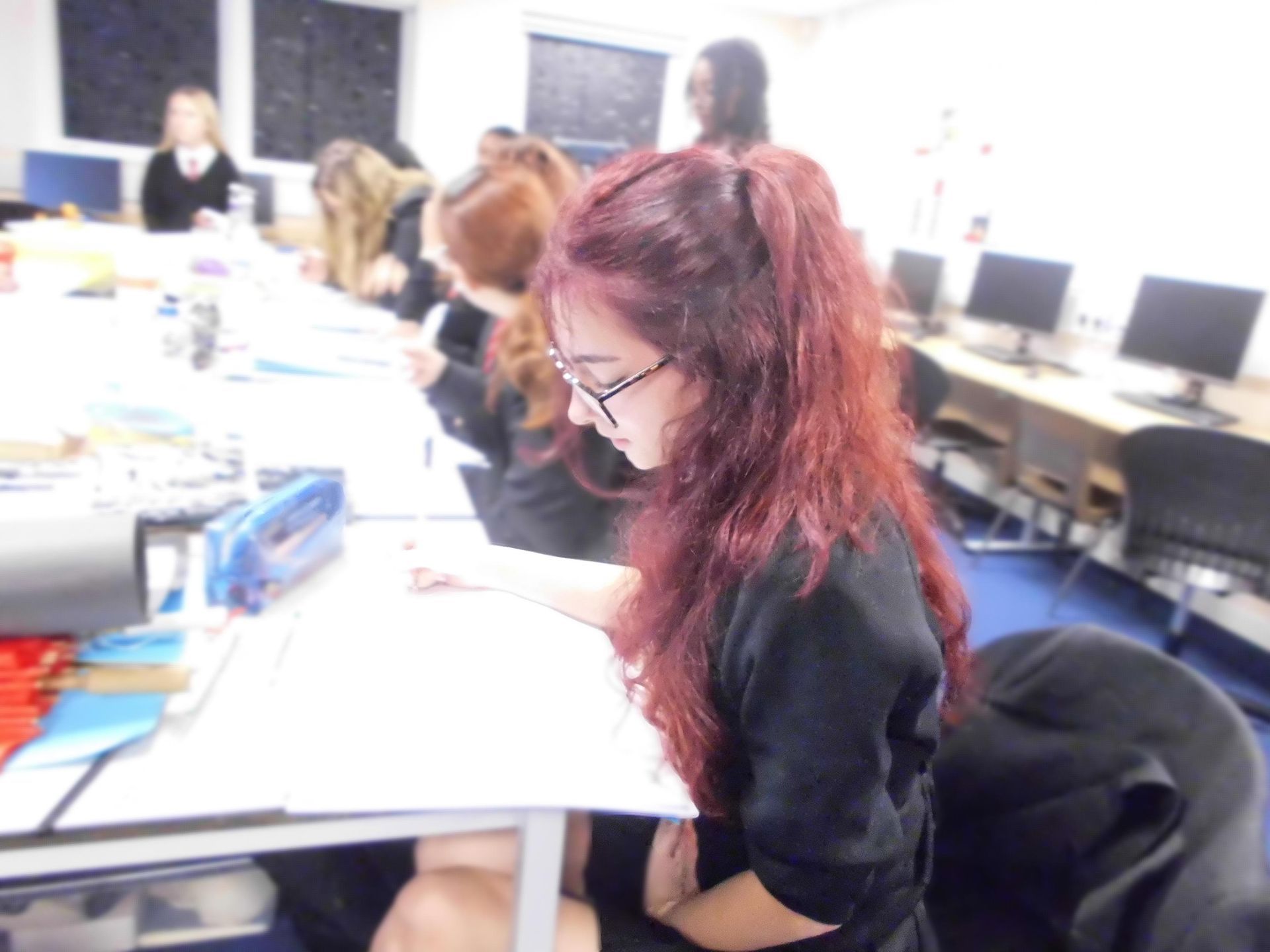Computing
Subject Leader: Mr S Henry
Computer Science Course Leader: Mr L VanGelder
At Robert Clack School, we deliver the full DfE Program of Study (PoS) for Computing at KS3. Computing comprises topics from the following areas:
- Digital Literacy
- Information Technology
- Computer Science
Details of the Programme of Study can be found here.
-
Key Stage 3
-
KS4 Cambridge National Information Technology courses
Cambridge OCR Nationals in IT
Why Choose Our Cambridge Nationals in IT KS4 Course?
If you’re looking for a course that blends creativity, technical skill, and real-world application, the Cambridge Nationals in IT is a smart choice. It’s designed for pupils who want to gain hands-on experience with digital tools while developing the kind of transferable skills that employers and colleges value.
Here’s why it stands out:
- Practical and Purposeful - Pupils don’t just learn about technology – they use it. From creating augmented reality experiences to managing data in spreadsheets, the course is built around practical tasks that reflect the digital demands of today’s world.
- Skills for the Future - The qualification develops more than just IT knowledge. Pupils strengthen their problem-solving, planning, analysis, and evaluation skills – all key for success in future education, apprenticeships, or careers in tech and beyond.
- Digital Confidence - Pupils become confident users of IT in a range of contexts. They learn how to create, adapt and present digital products effectively, giving them a strong foundation for both academic progression and workplace readiness.
- Engaging and Relevant Content - The topics are genuinely interesting: from how technology affects society to how businesses use IT to solve problems. Pupils see the bigger picture and explore the relevance of IT in their own lives and future ambitions.
- Well-Recognised Qualification - The Cambridge Nationals Level 2 is widely respected and supports progression to Level 3 courses, including AAQs, Cambridge Technicals, or T-Levels.
Whether pupils are future programmers, designers, data analysts or just want to keep their options open, this course gives them the digital head start they need.
For more information please click here.
To see a comparison between Computer Science and Information Technology subjects please click here.
-
KS4 GCSE Computer Science
Cambridge OCR GCSE Computer Science
Why Choose Our KS4 Computer Science Course?
Choosing Computer Science at KS4 opens the door to understanding the technology shaping every aspect of modern life. This course is ideal for curious, logical thinkers who enjoy solving problems and want to learn how computers actually work — not just how to use them.
Here’s why pupils choose our course:
- Real-world relevance - From algorithms to cyber security, pupils explore how digital systems function in real life — and how to keep them safe. The course links directly to the world of work and future study.
- Core programming skills - Pupils learn to think like developers. Through Python programming, they write, debug, and refine code while learning the logic behind it. These skills aren’t just for coders — they support success in maths, science, and beyond.
- Computational thinking - Pupils are taught to approach problems methodically, break down complex tasks, and design efficient solutions — skills that are useful in any career.
- Stretch and challenge - This is a rigorous academic subject, ideal for those who enjoy thinking hard and are willing to practise to master new concepts. It provides strong preparation for A Level Computer Science or technical qualifications in IT.
- Excellent progression routes - Whether pupils aim for a career in software development, engineering, cyber security, AI, or data science — or just want to keep their options open — this course builds a strong foundation.
- Engaging and modern content - Topics include how computers handle data, what happens ‘behind the scenes’ in a network, how to think algorithmically, and how ethical, legal, and environmental issues are linked to technology.
For more information please click here.
To see a comparison between Computer Science and Information Technology subjects please click here.
-
KS5 A Level Computer Science
Cambridge OCR A-Level Computer Science
Why Choose Our Cambridge OCR A-Level in Computer Science (H446)?
Our OCR A-Level in Computer Science (H446) offers students the opportunity to explore how computers work, how they're used in real-world contexts, and how to think logically to solve problems. It’s a course that not only challenges but also equips students with a robust set of transferable skills that are highly valued in university and the workplace.
1. A Course Built for the Future - Computing is at the heart of modern life. From artificial intelligence to cybersecurity, students will engage with cutting-edge topics that prepare them for further study or employment in a rapidly evolving digital world.
2. Problem Solving at Its Core - At the centre of the course is the development of computational thinking – the ability to break down complex problems, create efficient solutions, and understand systems. These problem-solving skills go far beyond coding; they’re useful in science, maths, engineering, economics, and even creative subjects.
3. Hands-On Programming - Students learn to code from the ground up using a text-based language such as Python or Java. They'll complete a substantial programming project where they design, implement, and evaluate a real application, building a portfolio that showcases their practical ability.
4. Understanding the Inner Workings - The course covers computer architecture, memory, data exchange, and operating systems. It builds a solid technical foundation, helping students understand not just how to use computers, but how they really work – from hardware to software.
5. Cybersecurity, Data and the Law - In today’s world, digital ethics and security are vital. Students explore encryption, hacking, data protection laws, and legal responsibilities. This understanding is increasingly valued by employers and essential for responsible digital citizens.
6. Strong Progression Opportunities - Whether pursuing a Computer Science degree, an apprenticeship in tech, or a different field entirely, this A-Level provides respected evidence of logical thinking, creativity, and technical understanding. It also pairs well with Mathematics, Physics, and Business.
7. Taught by Enthusiasts - Our teaching team includes experienced staff with a passion for Computing and real-world industry insights. Lessons blend theory with practical tasks, discussions, and problem-solving challenges, keeping the course engaging and relevant.
For more information click here.
-
Cambridge OCR AAQ vocational courses.
Why Choose Our Cambridge OCR AAQ in Application Development?
Our Cambridge OCR AAQ in Application Development prepares students for the evolving demands of the digital world by focusing on key skills in application design, development, and immersive experiences. With a sharp focus on creativity, technical skill, and user-centred design, this qualification offers a powerful stepping stone into the tech industry or further study.
1. Practical, Employer-Backed Qualification - The course has been developed in collaboration with employers and education specialists to reflect the real-world needs of the tech and creative sectors. Each unit is grounded in current practice — not abstract theory — ensuring students gain relevant experience in developing usable, innovative digital products.
2. Hands-On Development Skills - Learners take on a range of projects that develop both technical proficiency and creative thinking. Core areas include:
- Application Development: Build functional, user-focused digital tools and solutions from the ground up.
- Application Software: Gain a deep understanding of how software is planned, tested, and deployed for real-world use.
- Designing and Communicating UI/UX: Learn how to design intuitive user interfaces and create meaningful user experiences — essential skills in modern digital design.
- Game Development: Explore the design and technical aspects of creating interactive digital games, including mechanics, storyboarding, and visual development.
- Immersive Technology Solution Development: Develop solutions using AR and VR, gaining practical insight into technologies shaping the future of user interaction.
3. Industry-Ready Portfolio - Throughout the course, students build a diverse portfolio of real-world digital products. Whether it's a working prototype, a fully developed app, or a concept for an immersive experience, each project provides tangible evidence of skill and creativity. This portfolio is a key asset when applying for university, apprenticeships, or employment.
4. Flexible and Accessible - This course suits learners who prefer project-based assessment over terminal exams. It’s ideal for students who are analytical and creative, and who enjoy solving problems through design and technology. The blend of coursework, reflection, and skill development supports different learning styles and encourages independence.
5. Future-Proofed Careers - With digital roles evolving rapidly, this qualification equips students with both specific technical skills and adaptable thinking. Skills in UI/UX, immersive tech, and application development are in high demand across industries — from media and gaming to healthcare and finance. Our students leave not just ready for today’s opportunities, but for tomorrow’s challenges.
Courses Available:




